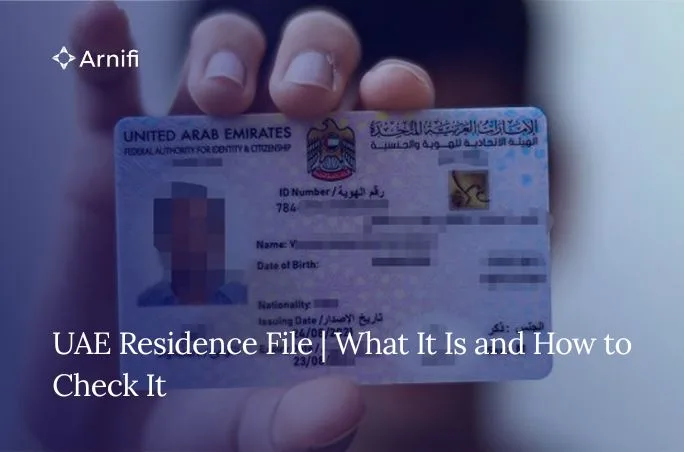Penalties for Late Tax Filing in Dubai | VAT, Corporate Tax & Other Fines Explained
by Ishika Bhandari Oct 15, 2025  6 MIN READ
6 MIN READ

Table of contents
- 1. Introduction
- 2. Why Late Tax Filing Is a Serious Issue in the UAE?
- 3. VAT Late Filing Penalties in Dubai
- 4. Corporate Tax Late Filing Penalties
- 5. Excise Tax Penalties
- 6. Economic Substance Regulations (ESR) Non-Compliance
- 7. AML & Ultimate Beneficial Owner (UBO) Fines
- 8. How to Avoid Penalties
- 9. Process to Appeal or Settle Tax Penalties
- 10. Talk to Our Tax Expert
- 11. Conclusion
Dubai taxes and late penalties are a necessity for every business operating in the UAE. The Federal Tax Authority (FTA) makes sure that tax compliance is strictly adhered to, and any failure to do so might result in devastating financial loss. This article outlines penalties under various tax heads, including value-added tax, corporate income tax, excise tax, and some economic substance regulations, as ingredients to help you handle the jargon of taxes in compliance with Dubai.
1. Introduction
Many businesses that operate in Dubai are generally confused regarding the taxes applicable to them. However, it should be remembered that all taxes within Dubai are applicable throughout the UAE, and penalties regarding late tax filings do vary. Understanding those penalties is a major requisite to avoiding unnecessary expenses.
2. Why Late Tax Filing Is a Serious Issue in the UAE?
There can be severe legal and financial implications for late-filing taxes within the UAE. The FTA has included the automated system of penalties for various acts of non-compliance, which quickly build up into significant figures. Moreover, there are very serious damages done to the business image, and it may result in legal actions.
Besides penalties, the late filing of tax returns could bring business to a standstill, block cash inflows, or jeopardize future relationships with banks or governmental authorities. Continued non-compliance could also result in a knock-on effect in audit or investigation, making it extremely difficult to secure licenses or approvals for expansion, partnerships, or new projects in the country.
3. VAT Late Filing Penalties in Dubai
Value Added Tax will amount to the highest source of revenue coming from the UAE government. Businesses are obliged to submit returns and make the necessary tax payments for VAT by the 28th day of the month following the month in which the tax period ends. Thus, failure to do so will be penalized as follows:
- Late Return Submission: AED 1,000 for the first offence; AED 2,000 for subsequent offences
- Late Payment Penalties: Starting from an immediate 2% of the unpaid VAT after the due date, and increasing by 4% for every month thereafter, with a cap of 300% of the amount of unpaid tax
- Failure to Register or Deregister on Time: AED 20,000 penalty for late registration and AED 10,000 for late deregistration
4. Corporate Tax Late Filing Penalties
Corporate tax is applied to businesses that are running in the UAE, and filing on time is compulsory in this respect. The late filing penalties for corporate tax returns are as follows:
- Late Filing of Returns: AED 500 penalty/title month or fraction thereof under the first twelve months; and thereafter AED 1,000 for each month or part thereof
- Failure to Settle Corporate Tax Payable: From the unsettled payable tax, a monthly penalty of 14% per annum will be charged
- Late Registration: A penalty of AED 10,000 for late registration, but may be waived if a tax return is filed within seven months from the end of the first tax period
5. Excise Tax Penalties
Excise tax is imposed on specific goods harmful to human health or the environment, and fines for non-compliance with these rules are as follows:
- Late Submission of Declarations: AED 1,000 for the first month plus any part thereof for the first 12 months; increases to AED 2,000 for each month or part thereof beginning with the 13th month
- Failure to Pay or Register: Similar to VAT, penalties are based on corporate tax levels but progressively escalate
6. Economic Substance Regulations (ESR) Non-Compliance
These regulations require an entity that has a particular business activity in the UAE to carry on that business activity “substantial activity” in the UAE. The penalty for non-compliance is:
- Late Filing of Notifications/Reports: AED 20,000 for the first instance and AED 50,000 for subsequent offences
- Failure to Meet Economic Substance Requirements: AED 50,000 for the first instance and increased to AED 100,000 for subsequent offences
7. AML & Ultimate Beneficial Owner (UBO) Fines
All legislative use of anti-money laundering (AML) and UBO laws requires businesses to have an accurate register of their beneficial owners. Penalties for failing to comply with these regulations include:
- Late or Missing Reporting: AED 10,000 for the first instance; increasing to AED 50,000 for further violations
- Failure to Update Information: AED 5,000 fine for each instance of non-compliance
8. How to Avoid Penalties
The following ways can be useful in avoiding penalties for late tax filing in Dubai:
- Timely Registration and Filing: Timely registration of all tax registrations and timely filing of returns are essential requirements
- Reminder Systems: Internal systems might help in tracking tax deadlines and sending out reminder notices
- Outsourcing: One could outsource a tax agent or consultants for tax compliance and filing work
9. Process to Appeal or Settle Tax Penalties
If you believe a penalty is imposed in error, or wish to settle pending fines, then:
- FTA Reconsideration: Application of appeal reconsideration through the EmaraTax portal
- Payment Plans: The FTA may offer payment plans for the settlement of unpaid penalties
- Voluntary Disclosures: It mitigates the penalties for inadvertent errors identified in tax filings
10. Talk to Our Tax Expert
High-risk businesses, new companies, cross-border operations, and SMEs without in-house accountants benefit from talking with tax experts about the intricacies of tax compliance, which can prevent settling fines.
11. Conclusion
Late-payment penalties applied to tax range from one type of tax to another and will also differ depending on the proportion of non-compliance. Awareness of these penalties and having mechanisms in place to ensure timely compliance would avoid putting undue financial pressure on any business. Therein, professional assistance would be the best way to untangle the complexities of tax laws that apply in the UAE.
Make sure you remain compliant with the UAE’s VAT, corporate tax, excise, and ESR obligations to avoid these costly penalties. Arnifi’s expert team helps you file on time, manage registrations, and effortlessly navigate complex regulations. Protect your business, save money, and get peace of mind; partner with Arnifi for seamless tax compliance today.
Top UAE Packages

Related Articles
Top UAE Packages



